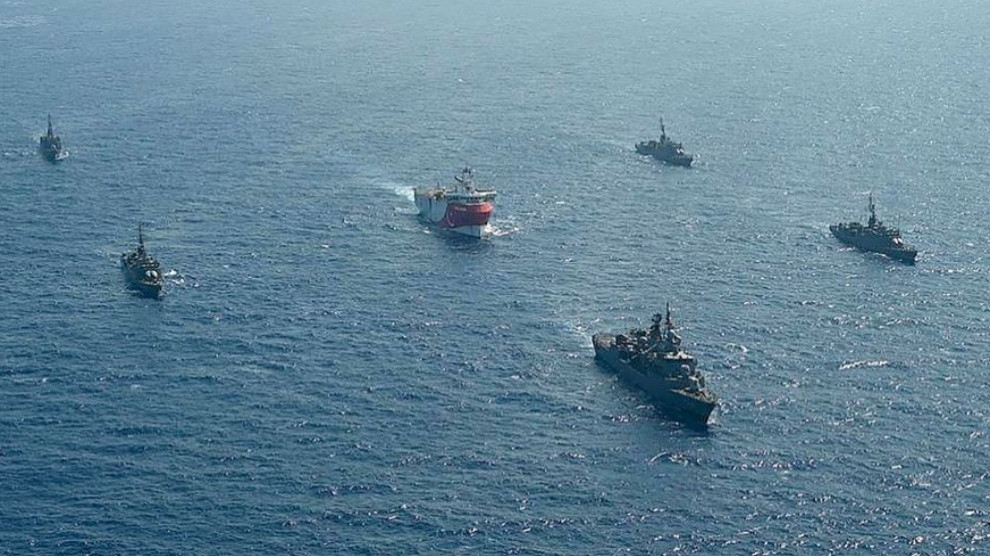Tension grows in Eastern Mediterranean
Tension is growing in the Eastern Mediterranean, following a number of incidents between Greek and Turkish naval vessels and aircraft in the coastal area surrounding the island of Cyprus.
Tension is growing in the Eastern Mediterranean, following a number of incidents between Greek and Turkish naval vessels and aircraft in the coastal area surrounding the island of Cyprus.

Sinn Féin spokesperson on Foreign Affairs and Defence John Brady TD said: “The cause of this tension lies in the discovery of what is a major gas find in the region, which is estimated to be in the region of 3.5 trillion cubic meters. Or enough to keep the whole of the United States supplied for up to a decade. EU interest in the area lies in the potential of the gas find to ease European energy dependency on Russia."
Brady added: "The potential for conflict in the area grows as Cyprus, Greece and Turkey issue competing claims on the coastal areas surrounding Cyprus, and the Greek Islands of Crete and Karpathos. The decision by the French government to send naval vessels and jet fighters into the area to provide backing to Greek and Cypriot forces, following Turkish incursions into areas where French oil companies are engaged in exploration, illustrates the volatility of the situation."
A nation’s territorial waters extend twelve miles from the coastline, while the UN convention for the law of the sea recognises an exclusive economic zone (EEZ) which allows a nation to claim any mineral deposits discovered under the sea for a 200-mile radius. Turkey has not signed up to the UN convention, and refuses to abide by its regulations, and instead stakes a claim based on the continental shelf theory. Subsequently, this allows Turkey to counterclaim over Cypriot territorial claims.
Energy ministers from Egypt, Palestine, Jordan, Greece, Cyprus and Israel all met last year without Turkey to discuss co-operation and the setting up of the East-Med Gas Forum. Turkey having ignored the Cypriot EEZ, has instead entered into a bilateral agreement with the UN recognised Government of National Accord in Libya.
This agreement, which merges the continental shelf of the two countries allows Turkey and Libya to effectively reward themselves with large sections of the gas fields between them. Sections of these exploration blocks lie adjacent to Cyprus and the Greek islands of Crete and Karpathos. Turkey’s unilateral actions have been deemed illegal and are considered deeply provocative in the area.
Sinn Féin Brady said: "I believe that there is a role here for the international community to use its influence to assist in bringing a resolution to a situation that possesses the potential to turn into an armed conflict. The decision by the European Council to hold a special meeting on the issue of the Eastern Mediterranean in September is a welcome development. But one which should proceed with caution. This is a moment for diplomacy to be used to defuse tensions, and to attempt to bring about an agreement consistent with international law. I commend the decision by the Cypriot government to petition the International Court of Justice in the Hague for a ruling on the competing claims of Cyprus and Turkey. Both countries have much to gain through mutual co-operation. But, with tensions as high as they are at the moment, a single incident could see the outbreak of one of the most devastating conflicts in the area in decades."